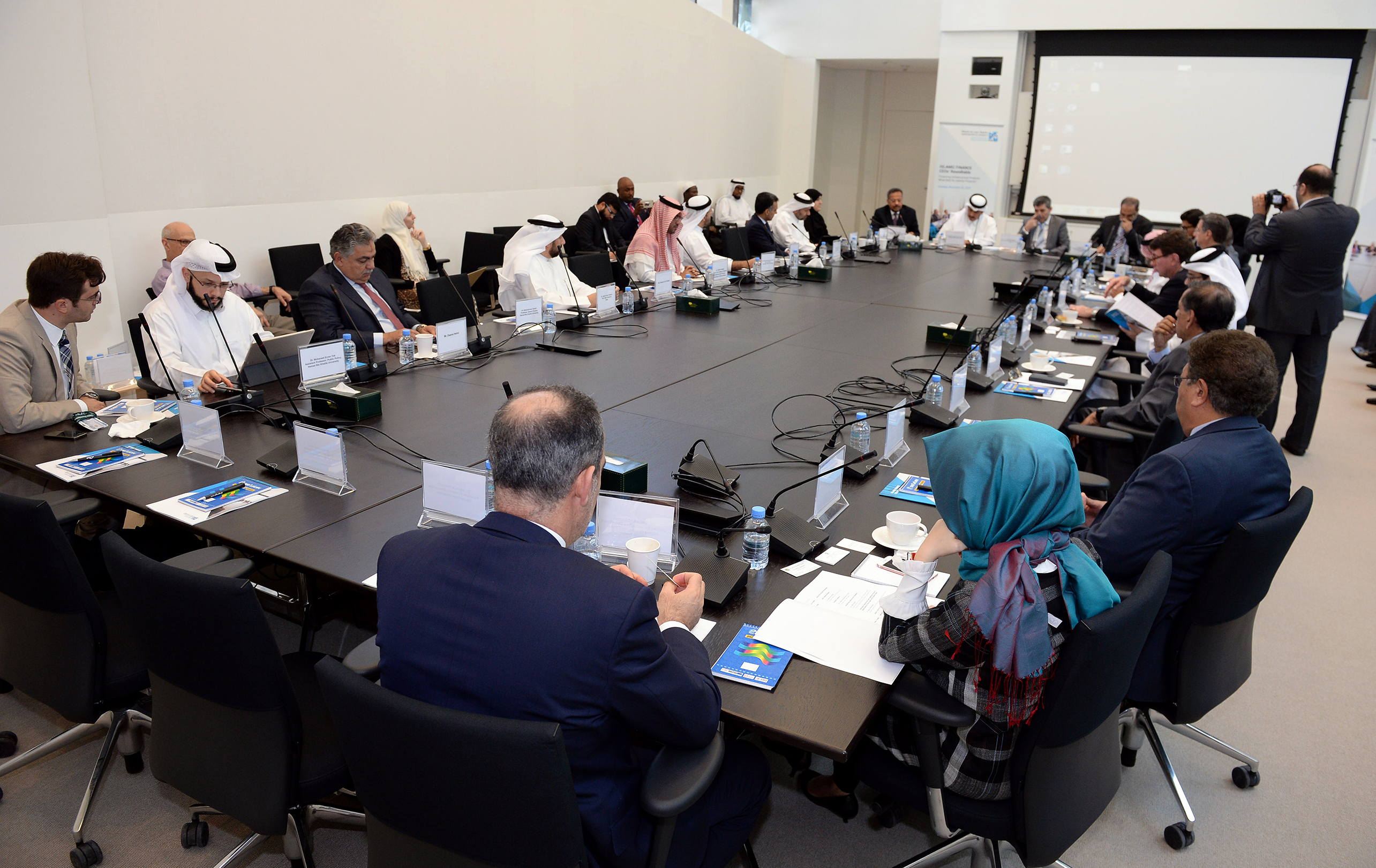
The College of Islamic Studies at Hamad Bin Khalifa University (HBKU) held its annual Islamic Finance CEOs’ Roundtable today on the role of Islamic finance in financing infrastructure projects.
The event brought together Islamic finance and economics representatives from industry and academia to understand on-the-ground realities and challenges, work together to reduce barriers to accessing Islamic finance, create more sustainable and ethical Shari’a compliant products, and encourage a more robust economy that meets the needs of all segments of society. The topics of discussion and organization of the event was prepared by the Center for Islamic Economics and Finance at the college, with H.E. Sheikh Abdullah Saud Al-Thani, Governor of Qatar Central Bank, providing the keynote address.
Those in attendance included CEOs, senior advisors, and directors of major financial institutions in Qatar and from across the GCC region. Academics from HBKU and its partner universities also participated in the roundtable, as well as a number of HBKU Islamic Finance master’s students, who took advantage of the opportunity to connect with CEOs in attendance and share insights from their studies and research projects.
Welcoming remarks were offered by Dr. Ahmad M. Hasnah, President of HBKU. Dr. Hasnah said: “I’m glad to see this dialogue take place between experts in the field. Hamad Bin Khalifa University stands behind knowledge generation and knowledge discourse, and it is important to engage relevant stakeholders on the local, regional, and international scene.”
In his keynote address, H.E. Sheikh Abdullah Saud Al-Thani said: "I am pleased to see banks and finance companies’ CEOs, academics and students participating in productive discussions which aim to find solutions to the challenges facing Islamic finance, as well as to enable Islamic finance professionals to play a role in determining the best way to achieve desired goals and have a positive impact on the overall economy.”
He added: "Islamic banking has seen rapid development and success over recent years and according to the Arab Monetary Fund’s latest estimates for 2016, the industry’s assets value surpassed one trillion US dollars and the estimated number of Islamic institutions is around 700 firms, of which 250 are operating in the Gulf region."
The CEOs’ roundtable initiative was launched to be a catalyst in opening communication channels between Islamic financial institutions and academia, creating an open forum to discuss new issues and products in the industry. This year’s event began with a discussion on the challenges that infrastructure project sponsors and governments face in utilizing Islamic finance and highlighted ways in which Islamic Finance can potentially help achieve infrastructure-related Sustainable Development Goals (SDGs) in the Muslim world. Participants discussed issues such as improving access to affordable, reliable and modern energy service, ensuring availability of water and sanitation for all, and substantially increasing health and education financing.
Roundtable attendees were also invited to give an overview of their activities in arranging or participating in infrastructure projects partially or fully funded by Islamic finance, noting common modes of financing and mentioning notable case studies.Current infrastructure projects in Qatar were also covered in light of the country’s rapid development in line with Qatar National Vision 2030.
To learn more about the work of HBKU’s Center for Islamic Economics and Finance or the University’s Master of Science in Islamic, please visit http://hbku.edu.qa/.





